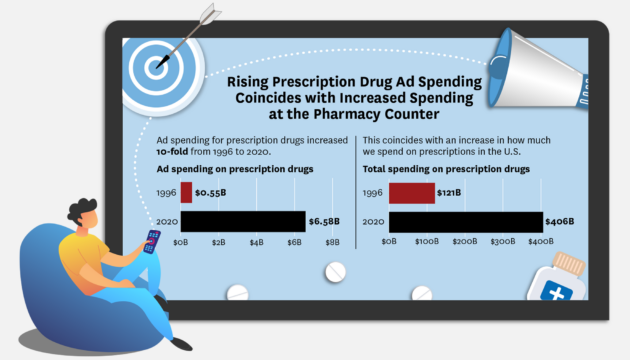Evidence Base
More from the Evidence Base Blog
-
A Spoonful of Sugar Makes the Medicine Go Down
CVS said its 9,500 pharmacies soon will be reimbursed by health insurers and other payers for the cost of the drugs plus a limited markup. That sounds like a simplification of drug pricing. But for vertically integrated CVS Health, revenue will shift from its pharmacy benefits division (CVS Caremark) to another (CVS Pharmacy). The move may also be an attempt to defuse growing political pressure to regulate the PBM industry.
Categorized in -
The “Un-Average”: Not Every Child Bounced Back After COVID
In the wake of COVID-related school disruptions, recent research has revealed what is proving to be a durable “parent-expert disconnect” – parents report their children are doing fine academically despite evidence to the contrary.
Categorized in -
Does Medicare Advantage Deliver Better Care for Persons Living With Dementia Than Traditional Medicare?
With data available from CMS on all Medicare beneficiaries enrolled in private plans and traditional Medicare, researchers at the USC Schaeffer Center are driving new research on how payment structures impact the care of persons living with dementia.
Categorized in -
Can a Free Virtual Outreach Series Increase Alzheimer’s Disease Awareness?
Lack of awareness remains one of the biggest barriers to participation in Alzheimer’s disease clinical trials, especially among underrepresented groups. New ways to connect with communities and to expand access to clinical trials include a virtual Alzheimer’s disease informational series, which reveals important insights about how people engage with virtual content differently than at in-person events.
Categorized in -
Blood Pressure Medication and Dementia Prevention: The Promising Link
SC Schaeffer Center researchers have turned to real-world data to probe the relationship between antihypertensive use and dementia risk in the U.S. population and among minoritized populations who are at the highest risk of dementia.
Categorized in -
COVID-19’s Total Cost to the U.S. Economy Will Reach $14 Trillion by End of 2023
Workplace absences, along with sales lost due to the cessation of brick-and-mortar retail shopping, airline travel and public gatherings, contributed the most.
Categorized in -
A COVID Takeaway for California: Data Needs to Drive Health Policy
A key lesson from the pandemic is that the state needs to get a better handle on economic trade-offs as it implements preventive measures, especially vaccines.
Categorized in -
Should the Government Restrict Direct-to-Consumer Prescription Drug Advertising? Six Takeaways on Their Effects.
Policymakers should proceed with caution as they design proposals to restrict advertising.
Categorized in -
Two Percent of U.S. Children Receive High Quality Tutoring, Despite Billions Funneled into School Systems
We are far from the goal of providing high-quality tutoring to all who need it.
Categorized in -
Eli Lilly Is Cutting Insulin Prices and Capping Copays at $35 – 5 Questions Answered
The drugmaker’s move responded to the growing competition that has shaken up the insulin market in recent years.
Categorized in









